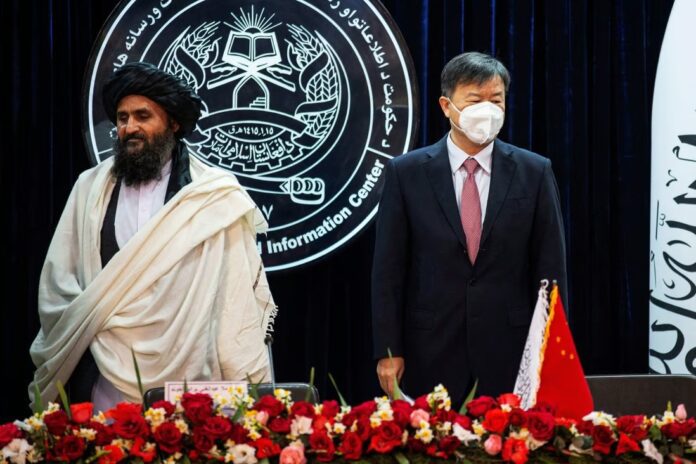The recent oil extraction agreement between the Taliban-led government and CAPEIC, a Chinese company, signifies a crucial step in Afghanistan’s economic landscape. This article examines the implications of this deal, highlighting the Taliban’s commitment to economic growth and their strategic engagement with China amidst international sanctions.
Following the regime change in Afghanistan, the country has witnessed notable developments in its economic landscape, defying initial expectations. Contrary to concerns of an imminent fiscal collapse, the Taliban-led government has shown a strong commitment to fostering economic growth. To counter Western-imposed sanctions and international isolation, the Taliban have actively sought cooperation with regional actors, most notably China. Recently, a significant oil extraction agreement was signed between the Taliban-led government and Xinjiang Central Asia Petroleum and Gas Co. (CAPEIC), a Chinese company. This marks a notable milestone in the Taliban’s engagement with foreign corporations since assuming power in 2021.
The contract, signed in Kabul, involves oil extraction from the Amu Darya basin and the development of an oil reserve in Sar-e Pul province. The ceremony was attended by high-ranking officials, including the acting minister of mines and petroleum and the Chinese ambassador to Afghanistan. The agreement covers a vast region encompassing Sar-e Pul, Jawzjan, and Faryab provinces, with the project expected to create over 3,000 local jobs. According to Zabihullah Mujahid, the spokesperson for the Taliban-run administration, CAPEIC will invest $150 million annually in Afghanistan under the contract, with the investment gradually increasing to $540 million over three years. Mujahid also stated that the Taliban-run administration will hold a 20 percent partnership in the project, which may be expanded to 75 percent in the future.
Afghanistan possesses untapped natural resources worth over $1 trillion, attracting foreign companies’ attention. China’s interest in Afghanistan stems from its strategic location concerning the Belt and Road development program, despite not officially recognizing the Taliban government. The presence of ISIS in Afghanistan has not deterred China from pursuing economic interests in the region.
China’s engagement in Afghanistan aligns with its geoeconomic ambitions and will help Afghanistan stabilize its economy, which has been severely affected by sanctions, rendering the country unlivable for the majority of the population. Initiatives such as the oil extraction agreement offer a pathway for rebuilding Afghanistan and providing livelihood opportunities for its youth
Hence, the oil extraction agreement between the Taliban-led government of Afghanistan and CAPEIC represents a significant step toward economic development in the country. The Taliban’s commitment to economic growth and engagement with China highlights their efforts to mitigate the impact of sanctions and rebuild Afghanistan’s economy. This agreement holds economic significance for Afghanistan and has broader implications in terms of China’s interests and geopolitical dynamics in the region.




